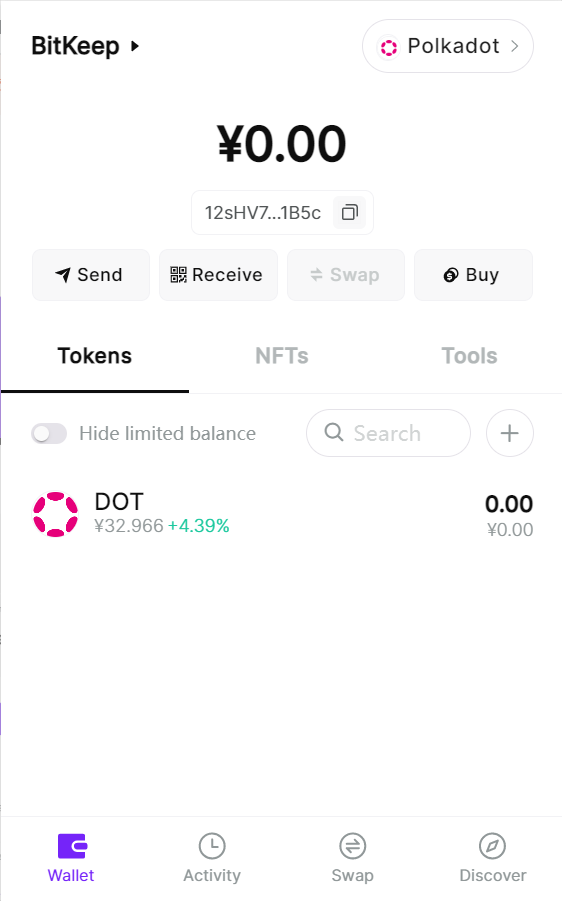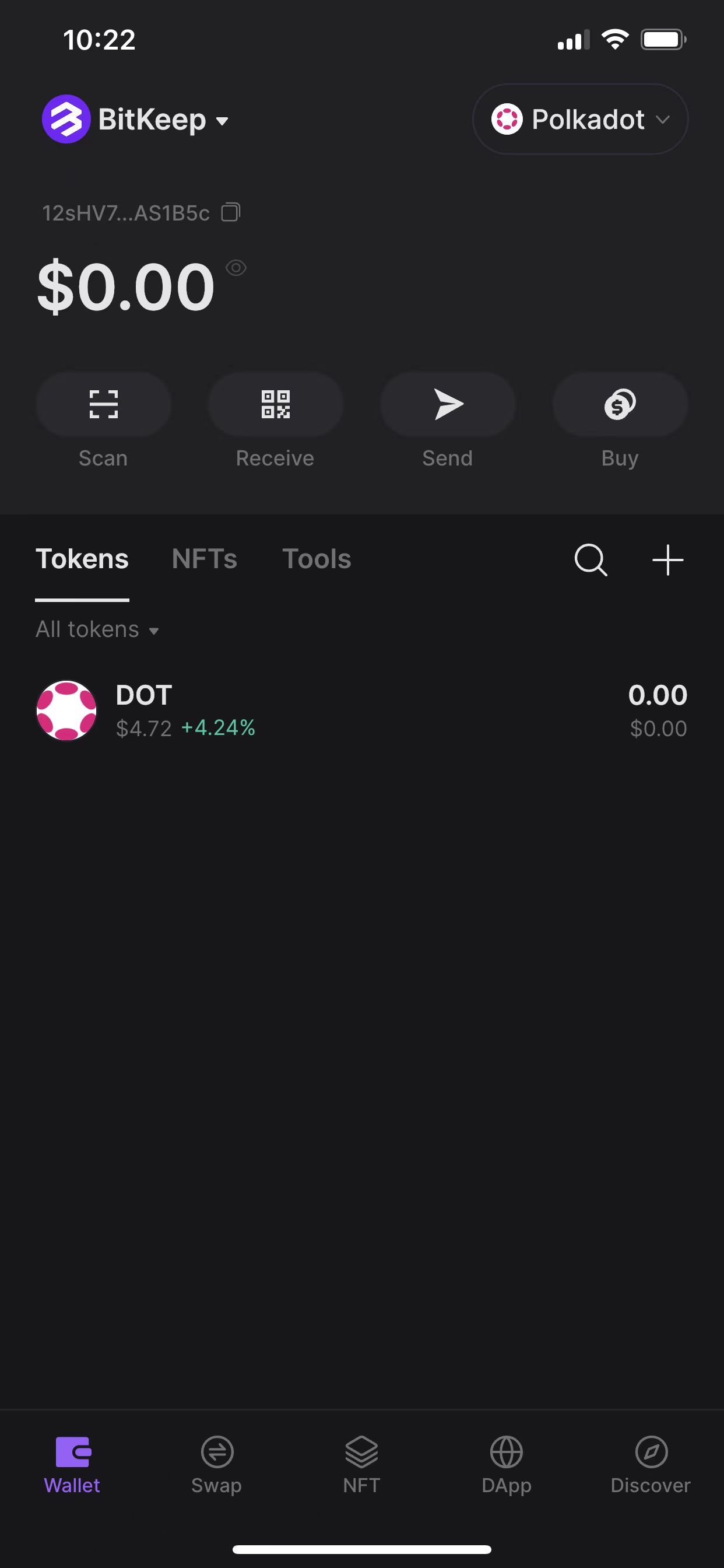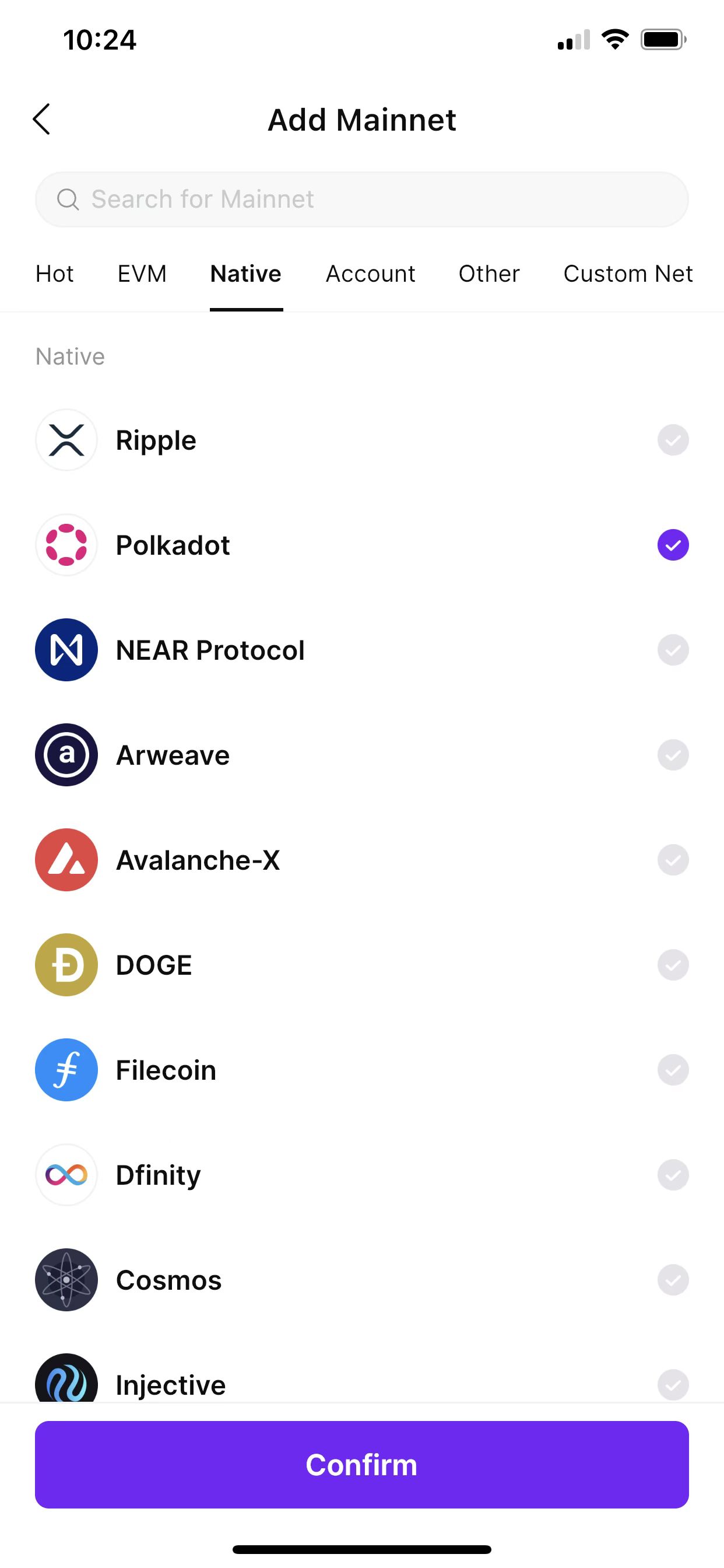
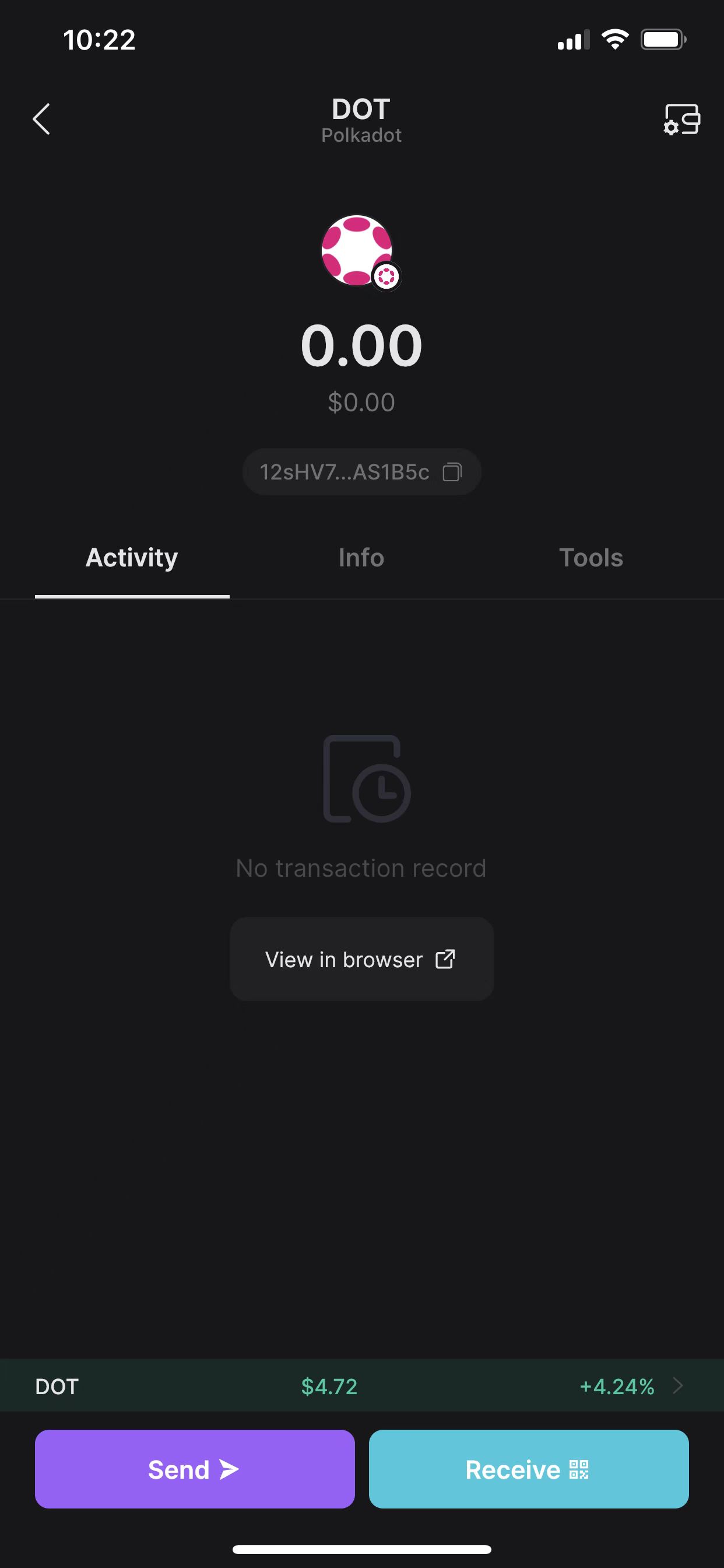
How to Create a Polkadot (DOT) Wallet in Bitget Wallet
- 1. Create or import a wallet.
- 2. Select “Add Mainnet”.
- 3. Select “Polkadot”.
- 4. Return to the homepage of Bitget Wallet. The Polkadot mainnet and DOT are now showing on the homepage!
You can also use our OTC feature to buy USDT/USDC with fiat currency and swap for other tokens.
Polkadot (DOT) Wallet Features
Swap on Polkadot (DOT)
Bitget Swap has the most inclusive DOT market intelligence, including Real-time Quote, Token Price Chart (which users can choose to view by Day, Week, Month, or Year), Token Contract, Market Cap, Circulating Supply, Holders, Transaction Histories, and Data Analysis.
زيارة Bitget Swap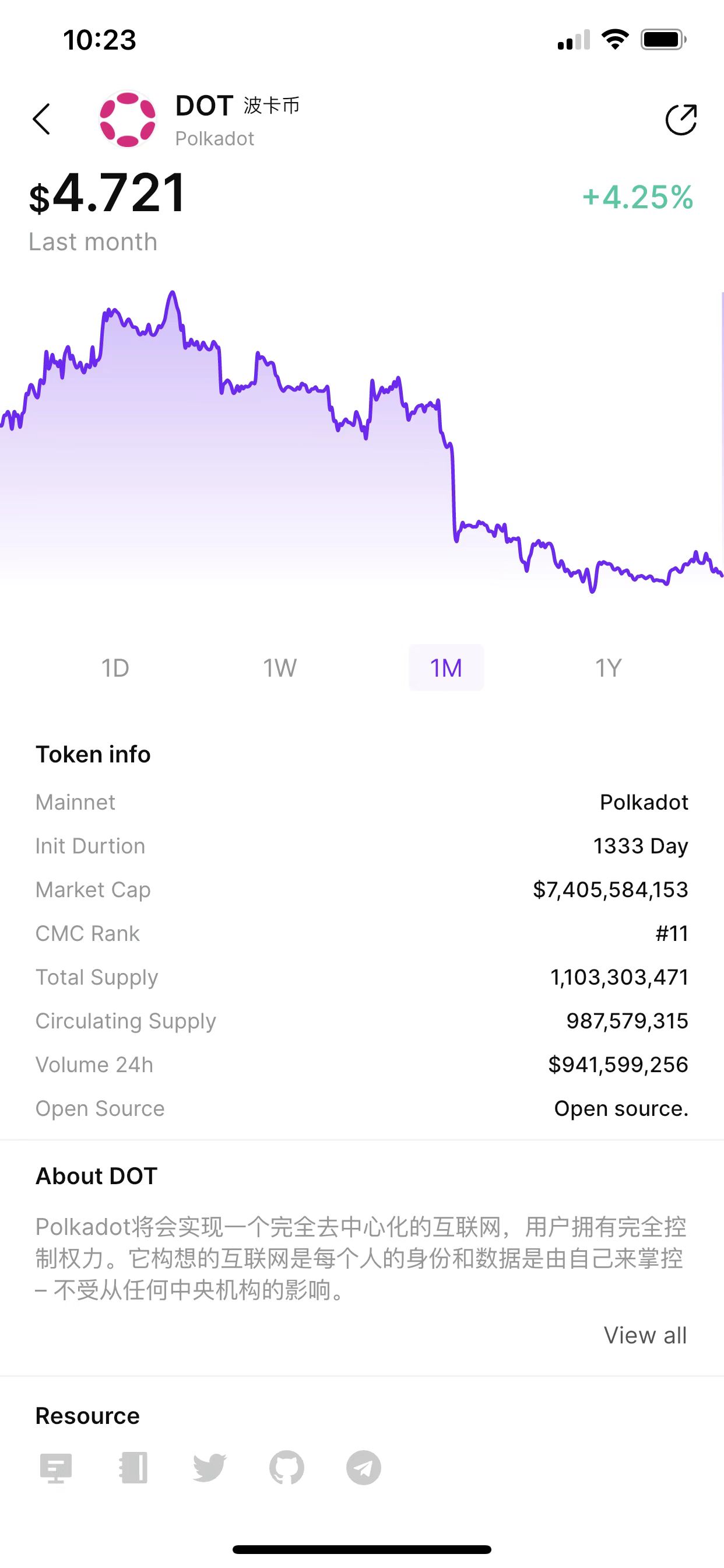
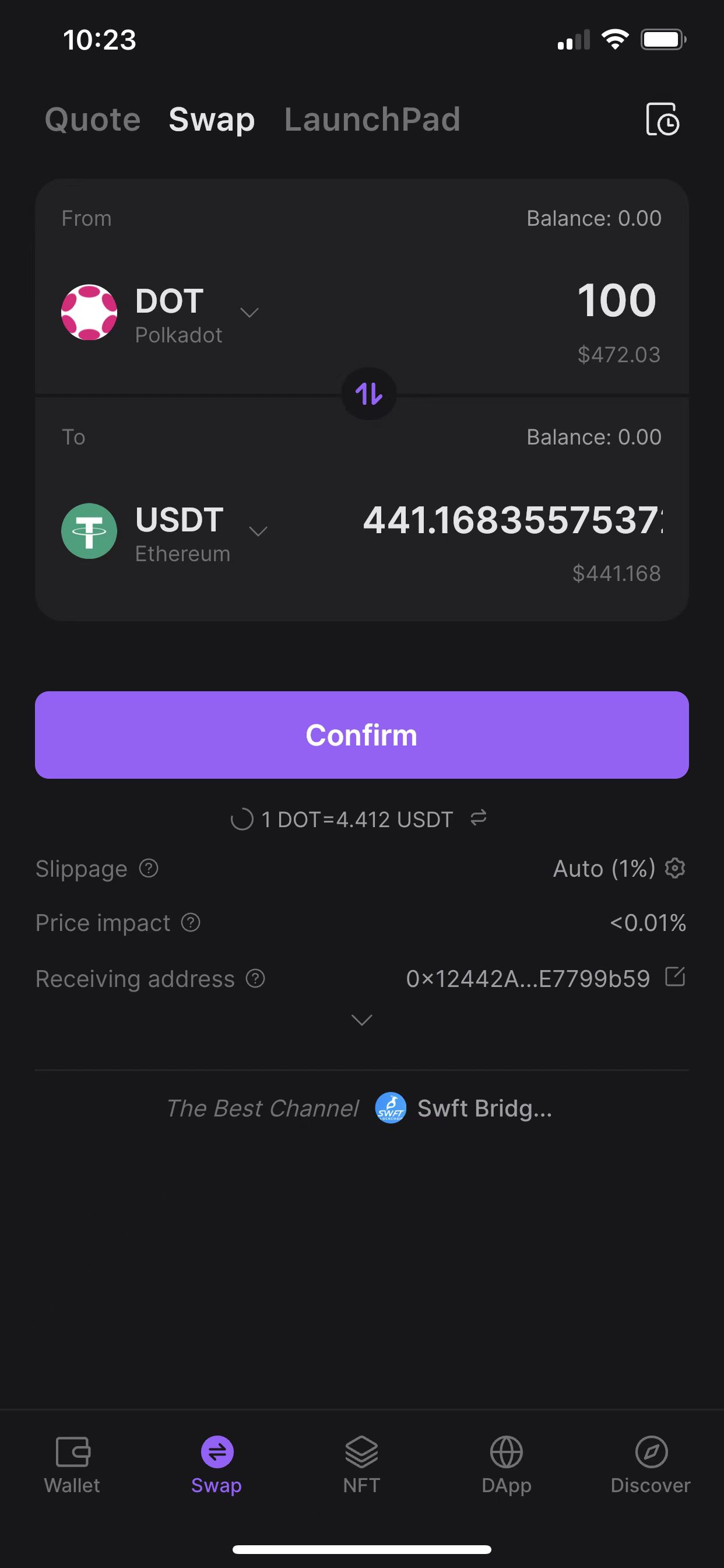
FAQ
How to buy DOT? 

What’s the best Polkadot (DOT) wallet? 

How to download Bitget Wallet and create a Polkadot (DOT) wallet? 


About Polkadot
What is Polkadot?
Polkadot is a blockchain platform that aims to enable different blockchains to interoperate and exchange data more securely and efficiently. To help blockchain networks to operate seamlessly together, Polkadot relies on their so-called unbounded blockchains – the parachains. Instead of building DApps using smart contracts, Polkadot gives developers complete control over the underlying blockchain itself. The goal of Polkadot is to promote the development of a more open and decentralized internet by providing a way for different blockchains to communicate and work together. This could potentially have a wide range of applications, from enabling the transfer of digital assets between various blockchain networks to facilitating the creation of decentralized finance (DeFi) platforms.
What is DOT?
DOT is the cryptocurrency of the Polkadot platform. It is used to power transactions and applications on the platform, as well as to secure the network and provide governance. As a proof-of-stake (PoS) cryptocurrency, holders of DOT may choose to stake their DOTs natively and get incentives for helping secure the network. They can also participate in the decision-making process on the network by voting on proposed changes to the protocol and electing new validators. Many see it as a potential competitor to Ethereum (ETH) as it offers similar functionality and aims to be more scalable and flexible. DOT is currently the world’s 11th largest cryptocurrency by market value and is traded on many cryptocurrency exchanges.
What are the differences between parachains and legacy blockchains?
Parachains and legacy blockchains are both types of distributed ledger technology, and they have some key differences. Legacy blockchains, such as Bitcoin (BTC), use a proof-of-work (PoW) consensus mechanism to secure the network and validate transactions. On the other hand, Parachains are blockchain networks built on top of the Polkadot platform and use a PoS consensus mechanism. One of the main differences between the two is that parachains are designed to be scalable and interoperable, allowing for fast and efficient transaction processing and enabling the exchange of data between different blockchain networks. Instead of relying on each individual chain to secure the network, using the shared security of the Polkadot platform, multiple parachains can operate concurrently on the same network, potentially enabling much higher transaction throughput than is possible on legacy blockchains.
What are the advantages of using Polkadot?
Polkadot is designed to be highly scalable, allowing for fast and efficient transaction processing. One of the critical features of Polkadot is its ability to enable different blockchains to interoperate and exchange data with each other, which could lead to a wide range of DApps. Also, the flexibility of the Polkadot platform allows the creation of various customized DApps. In terms of security, Polkadot’s PoS consensus mechanism helps ensure the network's security and resilience. Besides, DOT holders can also participate in governance decisions on the network. If you have yet to experience Polkadot, download Bitget Wallet and create a Polkadot (DOT) wallet today!



